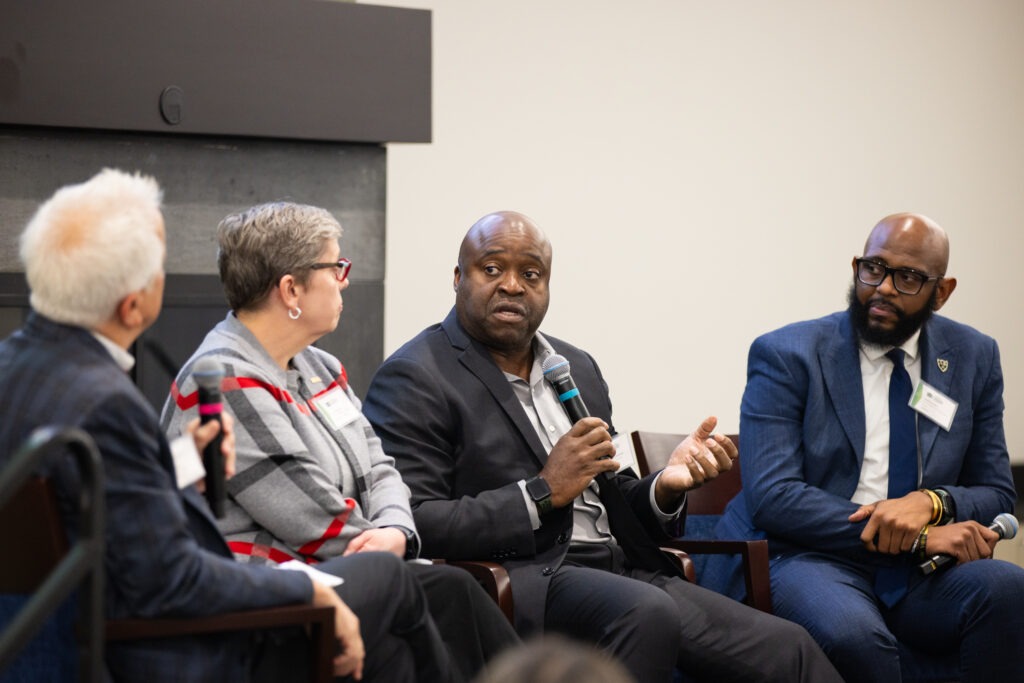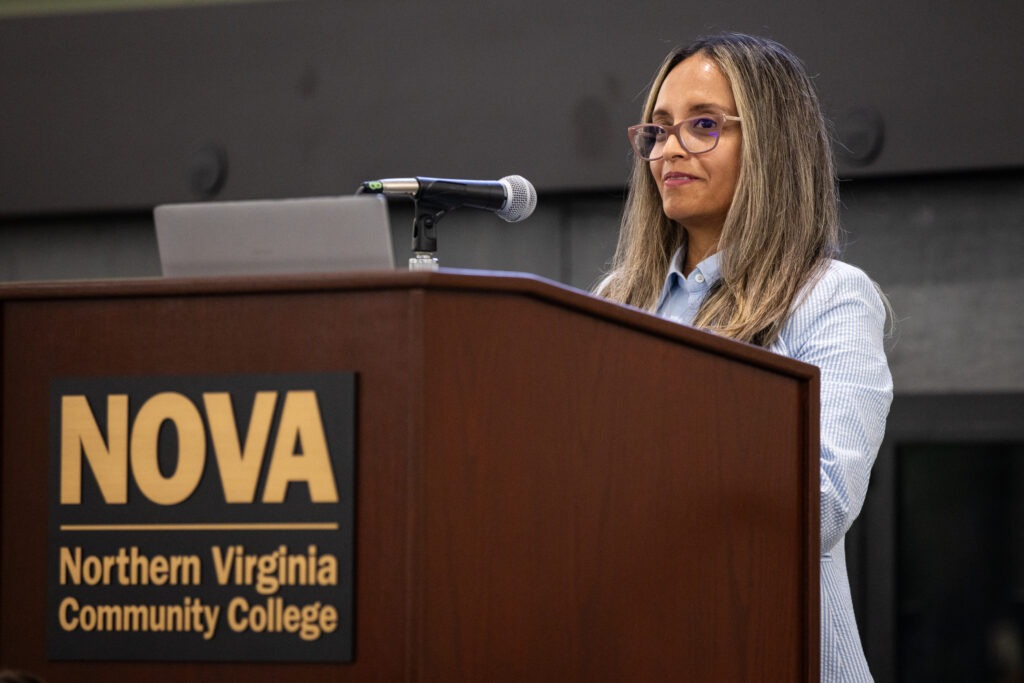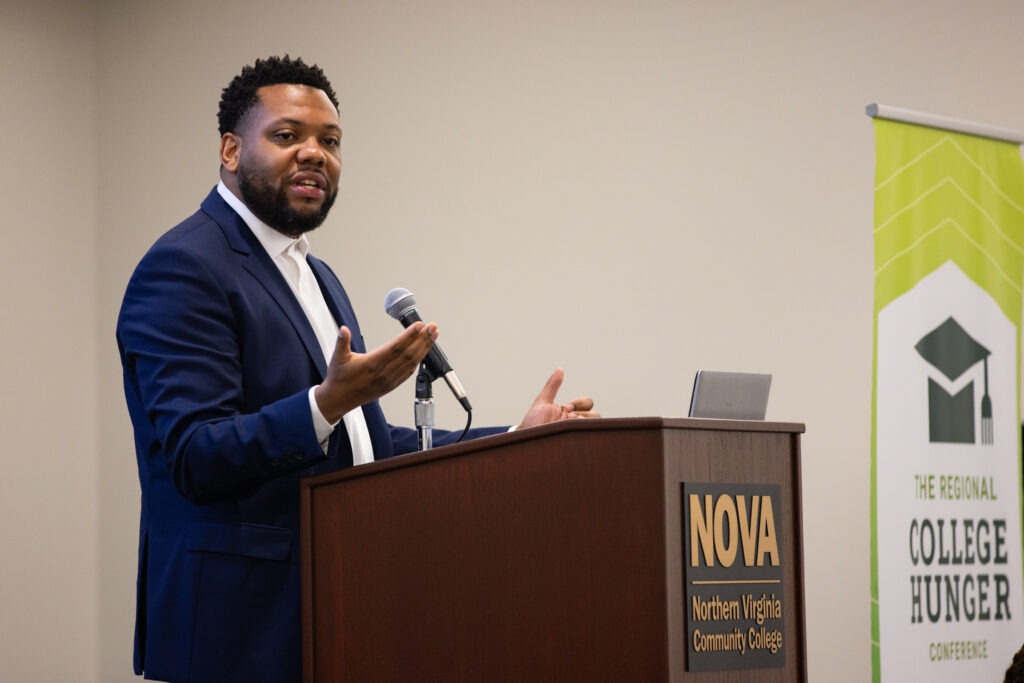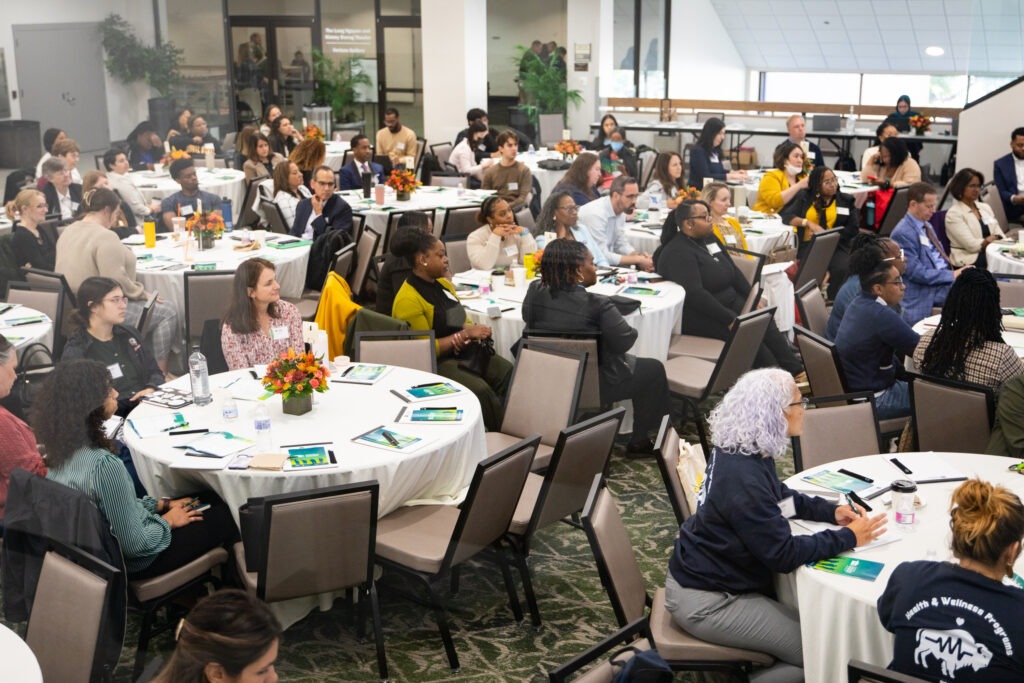The Capital Area Food Bank, the Consortium of Universities of the Washington Metropolitan Area, and Northern Virginia Community College joined in hosting the third-ever Regional College Hunger Conference. The conference brought together higher-education leaders, advocates and students to collaborate on strategies to ensure that students have the food they need to succeed.
The day-long event included insights from regional college presidents, as well student perspectives on the personal impacts of food insecurity. They underscored the widespread nature of food insecurity among students, with NOVA President Anne Kress sharing that close to 50% of students there facing challenges in meeting their basic needs.

Addressing food insecurity on our campuses is critical for increasing equitable outcomes in higher education. With that goal in mind, the Capital Area Food Bank collaborates with higher-education institutions across the region on a range of “Food+Education” initiatives supporting students, including providing grocery store gift cards directly to students in need.
The grocery gift card program has been “a lifeline” to Daysi Oscategui, a NOVA student and single mom of three children. Daysi told attendees how that support has allowed her to focus on her studies as she works to complete her associate’s degree later this year.

Many of the speakers emphasized how fundamental this issue is to student success in both the short- and long-term. “Education is supposed to be the great equalizer, but how can it be if students can’t focus because they’re hungry?” asked Bezil Taylor, MSW, Director of Field Education, Assistant Professor, at Trinity Washington University.

In breakout sessions, participants delved deeper with experts on a range of topics, including best practices for marketing services to students, and how to use data to evaluate program success and advocate for additional resources.
The conference included insightful conversation on how addressing food insecurity is critical to the economic vitality of the region. Meeting the basic needs of students helps them to complete their degrees, and when students can graduate and enter the workforce, it enables our region overall to succeed.

Photo Credit: Maansi Srivastava

